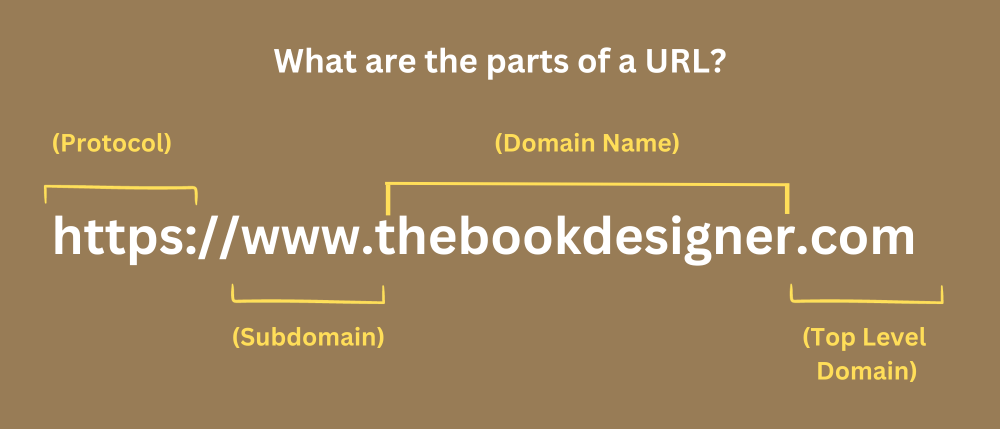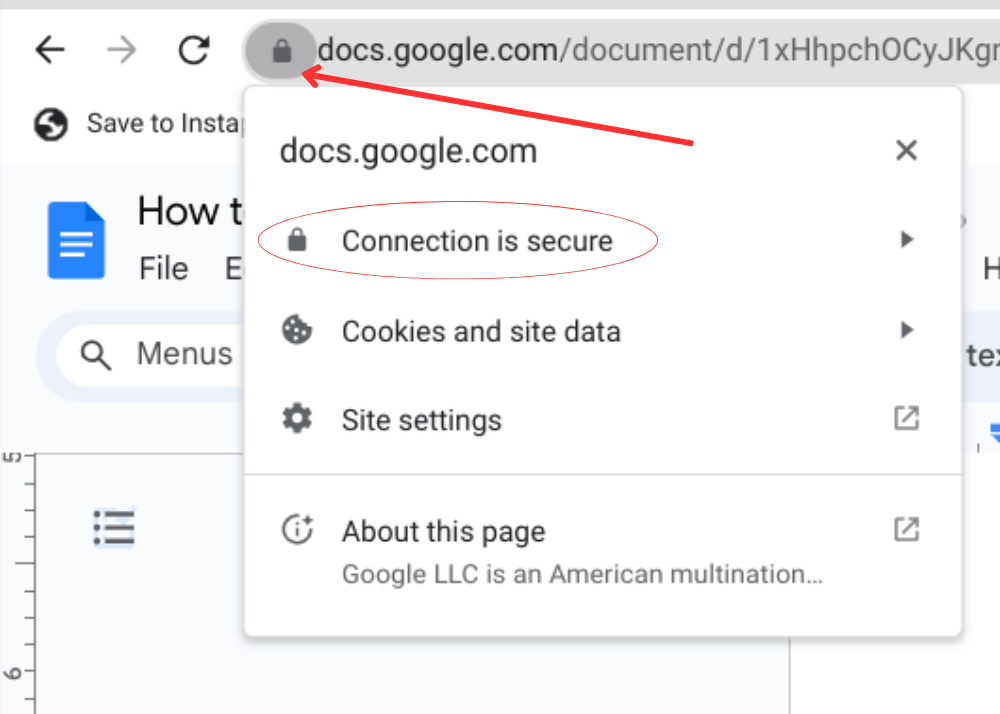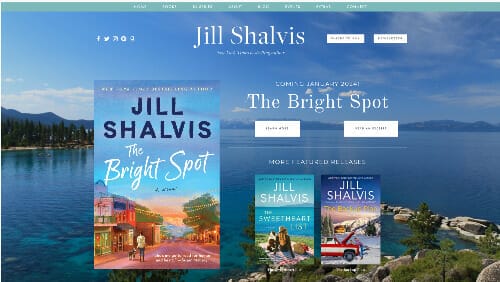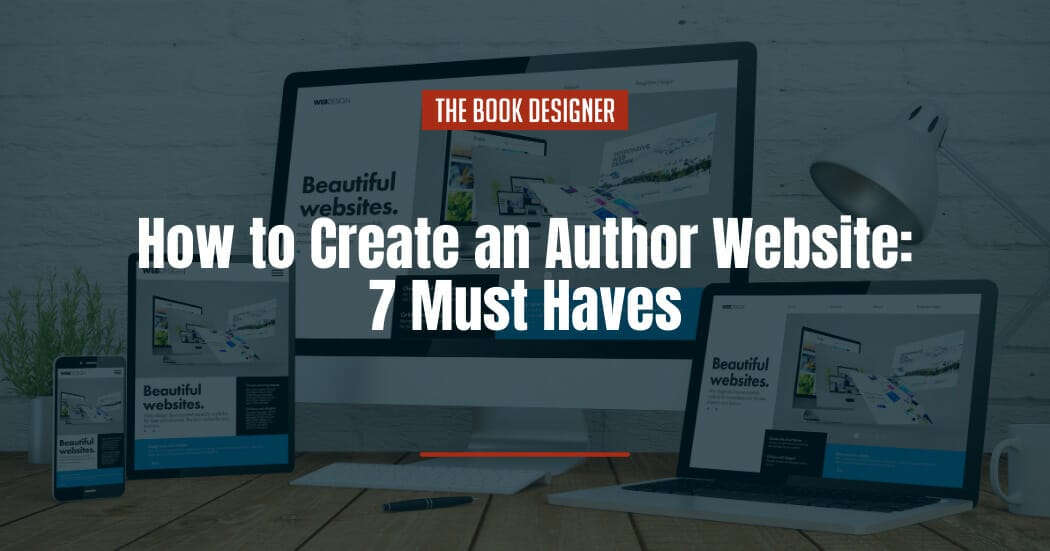As an author, a website is an essential part of your brand. When readers buy your book, they need somewhere to go to find you, and while social media platforms have their place, an author website is your home.
Below we’ll talk about the importance of having an author website, how to create one, and the 7 key elements that every author website should have.
Here’s what you need to know about creating an author website:
Why Do Authors Need Author Websites?
Every author needs an author website. When I like a book, I want to know more about the author, so I always try to find their website.
Author websites can give me insight into the person who wrote one of my favorite stories, but if there’s not a website, what are my options? Sure, I can go on Amazon and see a listing of their books, but maybe all of their books aren’t on Amazon. It’s not uncommon for authors to release books through different distributors, so I could be missing out.
Author websites allow you to engage with customers on your terms because when visitors are on your platform, you have better control over what visitors see and how they consume your information.
If you are depending on an algorithm on social media, or even Amazon to connect you with readers, there’s no guarantee that people will find your book. Companies will always do what’s in the best interest of the company.
But, if someone finds your author website link on social media, an ad, or in the back of one of your books, they can visit your website to learn more about you, and if you can get them to sign up for your email list, you’ve just made marketing to your readers easier on you and increased your potential for future book sales.
So having an author website is a no-brainer. It is an absolute necessity for every author who wants to have a successful book-selling career.
If you don’t have an author website, then your readers have to hop, skip, and jump rope to find you, and then it’s only bits and pieces of you; but when you have an author website, you can share your full story your way.
What Should Every Author Website Have?
Here’s a list of the 7 must-haves for every author website:
1. URL
This is your author website address. Just as your home has a street address, your website has an internet address. It’s the “www” that leads people to your property. If possible, opt for a URL with your name (or pseudonym) in the domain. Cute, unique names work well with shoe brands and restaurants, but they don’t work as well for an author’s website. As an author your name is your brand, so at all costs, you want to keep your brand consistent.

If your name is already taken as a standalone domain name, try adding “author” before or after it. Here are some other unique ways to build your URL using your name. I’ll use Jane Doe as an example:
- JaneDoeWrites.com
- AuthorJaneDoe.com
- JaneDoeAuthor.com
- BooksByJaneDoe.com
- JaneDoeBooks.com
- JaneDoeFiction.com
- JandD.com
- JDoe.com
2. Pic
Readers want to know what their authors look like. You can go the mysterious route, especially if you’re using a pseudonym and don’t want to reveal your identity; however, the more barriers you remove, the easier it will be to engage with your readers on an authentic level.
3. About the Author
There’s not always a lot of room on social media profiles or the back of your book to share an in-depth bio, but your website gives you all the space you need. Having an About the Author page on your website allows you to give your readers a behind-the-curtain look at what makes you uniquely you. Every author bio is different, and you don’t have to give readers the kitchen sink, but offering them enough to pique their curiosity as well as share insight on why you write the type of books you do, is a great way to build rapport with your reader.
4. Blog
I know. You probably have enough to do writing a book much less adding blog writing into the mix; however, if you have book-related interests that extend outside of what you’ve written in your book, your website is a good place to share it.
For example, say you write fantasy novels and you’re interested in world-building. You can use your blog as a testing ground to walk through the process with your readers. Or if you’re a memoir or historical fiction writer and interested in genealogy, you can share how you do your research. By sharing “extras” with your readers you may find that the type of reader you attract expands and your regular readers engage more with you and your books. Whether you write once a week or once a month, consistency is everything. You want your readers to know what to expect and when to expect it.
5. Book Page
Whether you sell your books on your website or not, giving readers who visit your website information on where they can buy your book gives you another avenue for book promotion. By having all of your books listed on your website with links to the different locations where they can get your book, buyers can purchase from their preferred location or directly from you.
6. Email Signup
One of the most important parts of your author website is your email list signup. This can be a popup that visitors to your website first see or it can be located in your sidebar or on specific pages or posts. Wherever it’s located, you want to encourage visitors to sign up. This allows you to build a list of potential readers of your books that you can keep updated on book releases. In exchange for their email address, always offer them something of value like a free download. Examples,
- Novella
- Behind the scenes
- Maps
- Character charts
- Study guide
- Workbook
Whatever download you decide to use, make sure it is relevant to your books and your readers.
7. Social Media/Contact Form
Tell your readers where they can find you off-site. It’s great to have visitors on your website, but social media is a hangout for most people with a smartphone (not all of them, but many), so it’s just as important for you to meet them where they are as it is for them to come to you. If you’re on social media, be sure to add your social media icons to your website with a direct link to your profile, so visitors can follow you on social media, too. Don’t forget to add a contact form. You never know what questions or opportunities may come your way.
Note: Make sure your website is secure. In the address bar at the top of your web page, there is a lock in the left corner of the bar. When you click on it, the drop-down menu should always say that the website is secure.

You can ensure that your website is secure through your website host (e.g. BlueHost, GoDaddy, Dreamhost). If your website is not secure, some visitor will not be able to access your website because their browsers will not let them open it without a warning.
What Types of Author Websites are There?
Before creating your website, you’ll need to decide if you are going to self-host it or host it through a website company.
Self-hosted
Self-hosted websites (e.g. WordPress.org, Drupal, Ghost, Grav, Joomla) provide the most flexibility, but the learning curve can be steep, or hiring a professional to help build the website can be expensive. But for those who want customizations and flexibility, a self-hosted website is the way to go.
Hosted
Hosted websites are almost “done for you” websites (e.g., WordPress.com, Squarespace, Wix). All you need to do is sign up, select a template, and plug in your information (That’s a simplified explanation). Self-hosted websites are easier to set up and you have customer support to walk you through any snags you run into.
Note: There’s no customer support for self-hosted websites, so you have to join communities or do extra research to find the answers you need.
What Fees are Associated with Building a Website?
URLs
As mentioned above, it’s a good idea to have a dedicated URL; however it is not necessary if you are using a hosted website like WordPress.com. You can still request a URL with your name, but if it’s available it will have the “wordpress.com” at the end of it. There’s nothing wrong with this; however, if you are working on building an author brand, you’ll want to get a dedicated URL. With self-hosted websites, a dedicated URL is required.
Domain Pricing
Unless you get one for free on a hosted website service, you can purchase one on a domain registrar website like:
- Godaddy.com
- BlueHost.com
- Dreamhost.com
- Namecheap
- Ionos.com
- Domain.com
- Hostgator.com
You can often find domains for as little as $1.99 for standard domains or premium domain names up in the thousands of dollars. It depends on the demand. You’ll also find that domains that end in anything other than .com, .net, and .org tend to be less expensive because they are not as popular, but that could change in the future.
Domain purchases are based on a renewal basis. You can’t buy them outright, but you can renew them from every year up to every ten years.
Website Design
On the least expensive end, both hosted and self-hosted websites offer free templates or themes that you can use for your website (there are a huge selection of WordPress themes for authors out there). They are basic web designs that have already been coded. You just have to select them, upload them to your website, and customize them (e.g. color, typography, images, content)
Prices increase when you either upgrade your template to a purchased one (lots of websites sell them) or hire a designer to create your website for you. There’s no standard rate for either service. Templates can be as inexpensive as a few dollars (not always the best buy), to a few thousand dollars. Website designer prices will vary depending on experience and work quality. Whichever direction you choose, do your research. All templates and designers can vary in quality and pricing, so check reviews and ask a trusted community.
How Long Does It Take to Create a Website?
The length of time for creating a website varies. If you use a self-hosted platform and create a simple one-page website in as little as a few hours to a day or two, depending on your experience.
For more complex websites, particularly those that are self-hosted, it depends on if you’re doing it yourself, hiring a professional, and how detailed the website is. On the low end, a couple of weeks, on the high end, a few months.
Author Website Inspiration
Here are three excellent examples of engaging author websites to inspire your creativity:
L.J. Ross

Jill Shalvis

Tim Sullivan

A Few Thoughts on Author Websites
An author website is a smart business choice when building your author brand. It should be engaging, infused with your personality, and represent your books and genre well. Whether you use a hosted platform or a self-hosted one isn’t as important as whether or not it gets your readers interested, most importantly signing up for your email list so that you can engage with them on your terms and not those of social media and marketplace algorithms.
The best author websites are those that pull readers into your world so that they want to be included in your book journey.



